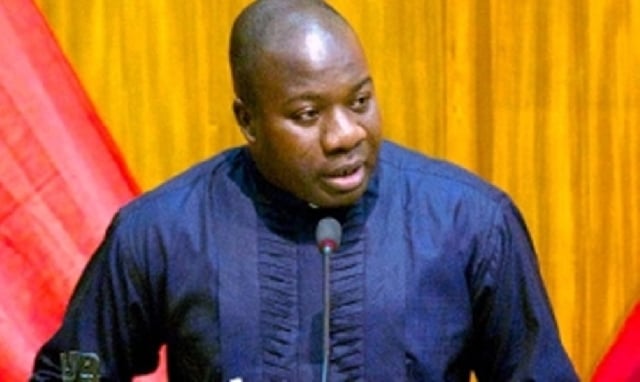In a recent incident that highlighted tensions within Ghana’s Parliament, Bawku Central MP Mahama Ayariga criticized Majority Leader Alexander Afenyo-Markin for his public grievances about parliamentary proceedings. The friction came to light when the Majority Party walked out of a parliamentary session, resulting in Speaker Alban Bagbin suspending the proceedings indefinitely. Following this disruption, Afenyo-Markin took to the media to voice his frustrations regarding the Speaker’s management of parliamentary affairs, claiming that Bagbin was creating disorder within the chamber and failing to maintain order.
Ayariga, in an interview with Citi FM, responded to Afenyo-Markin’s media statements by suggesting that such grievances should be directed towards parliamentary discussions instead. He emphasized the importance of addressing concerns within the parliamentary context rather than publicly venting frustrations. His remarks reflect a belief that issues concerning parliamentary procedures and leadership should be resolved among the members themselves, fostering a more constructive dialogue rather than escalating conflicts through media appearances.
In his critique, Ayariga called for Afenyo-Markin to concentrate on critical national issues instead of airing his grievances to the public. He implied that the Majority Leader’s focus on criticizing the Speaker detracts from the urgent legislative work that needs to be addressed for the benefit of the Ghanaian people. Ayariga’s remarks underline a growing frustration with political leaders who bypass institutional channels to seek validation or raise concerns outside of a formal setting, potentially undermining the legislative process.
The incident underscores a significant moment for Ghana’s Parliament, illustrating the challenges members face when conflicts arise among the leadership. Speaker Alban Bagbin’s role has been questioned, and the walkout by the Majority Party raises questions about the unity and functionality of the legislative body. There’s an inherent expectation that parliamentary figures should resolve differences internally, as public disagreements can negatively affect the institution’s credibility and effectiveness.
Political analysts have noted that such public disputes may have wider implications for Ghana’s governance and parliamentary democracy. If prominent leaders prioritize media engagements over dialogue within the chamber, it could set a precedent that diminishes the collective responsibility of lawmakers to work towards national progress. This situation calls for a reassessment of how parliamentary relations are navigated and how grievances are communicated, ensuring that productive discussions remain central to legislative practices.
Ultimately, Ayariga’s appeal to his colleagues serves as a reminder of the importance of fostering a collaborative atmosphere within Parliament. By urging Afenyo-Markin and other members to refrain from public criticism and to advocate for solidarity and focus on governance, Ayariga aims to redirect the conversation towards addressing the pressing needs of the country. The resolution of internal conflicts within the parliamentary framework is vital to maintaining effective democratic governance in Ghana.


